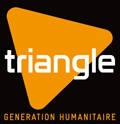Timor is an island in the Indonesian archipelago, located 300 miles north of Australia, between the islands of Java (East) and New Guinea (West). It is the largest of the Sunda Islands.
During the colonization, the island was split in two: the western part joined the Dutch Indies which later became Indonesia. The eastern part was annexed by Portugal, which withdrew in 1975. East Timor then proclaimed its independence but was invaded by Indonesia seven days later. During 25 years of occupation, Indonesia carried out a bloody and repressive policy towards the opponents. More than 250,000 East Timorese died during these fights and orchestrated famines. Vast transmigration plans from the over-populated islands of Java and Sumatra were initiated to outnumber the native population. In 1998, General Suharto, the President of Indonesia, was forced to resign following popular demonstrations. His successor, Habibi, conceded to East Timor the right to hold a referendum on self-determination under the aegis of the UN. Despite the violence accompanying this consultation, more than 78% of the Timorese voted in favour of independence. The Indonesian army and Timorese militias withdrew violently from the country, and in October 1999, Timor was placed under the transitional administrative rule of the United Nations. The country (Democratic Republic of Timor-Leste or Timor-Leste) officially became independent on May 20, 2002, and presidential elections were held. Four years after achieving full sovereignty, East Timor was again struck by the violence of a conflict, an internal one this time, causing massive population displacements throughout the country.
Today, East Timor is focusing on its political and economic stabilization. In 2012, the Timorese elected for the third time their President and the members making up their National Parliament. After more than 12 years of presence, the UN mission (UNMIT) and the International Stabilization Force (ISF) left the country at the end of 2012. Despite significant oil resources, 50% of the Timorese population lives below the poverty line on $0.88 per day. Agriculture still occupies and feeds 70% of the population, and malnutrition rates remain high (nearly half of the children suffer from undernourishment). Weak infrastructure makes daily life in the provinces particularly difficult. For some regions, the poor state of the roads and the lack of electricity and drinking water remain problematic, hampering access to health, education and work. The centralization of resources (higher education, telecommunications, transport, employment, health, etc.) encourages exodus towards the capital (+ 87% inhabitants in 20 years) and causes a feeling of isolation and abandonment in the rest of the country. Since its independence, East Timor has been undergoing a major demographic surge, even reaching the highest fertility rate in the world since 2002, with an average of 7.2 children per woman.
At the end of 2004, TGH conducted an evaluation mission which culminated, in the end of 2005, in the launching of a programme for access to water and sanitation facilities in areas affected by malnutrition. When the crisis broke out in 2006, TGH, with its experience in emergency situations, quickly launched, in collaboration with the Norwegian NGO NRC, a project for access to water and sanitation and hygiene promotion activities for 6,000 people in IDP camps. Thanks to the trust relationship built since 2007 with the National Agency for Water and Sanitation, TGH was appointed to carry out an exhaustive study on the Manatuto District water networks. In turn, larger programmes were implemented in close partnership with local NGOs working in the sector. At the same time, TGH is active in the protection and social sectors, and has notably implemented a psychosocial programme in the area of Becora in Dili, with the aim of recreating social links between host populations and populations displaced by conflicts, as well as a support programme for local actors working in the protection of women and children victims of domestic violence.
TGH's actions have always been developed in partnership with local NGOs, which have now acquired the capacity and means to continue working for the recovery of their country.
Triangle Génération Humanitaire therefore decided to end its presence in East Timor in January 2017.
